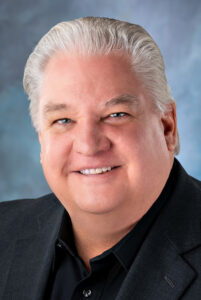By Keith Soko
SAU Theological Perspective Column
One thing about going to Catholic school was that you learned a lot about the saints. Theologian Elisabeth Schussler Fiorenza has noted that one of the things about Catholicism that she found

most liberating was the idea that all people are called to sainthood, whether male or female. One of the saints that most struck me while growing up was John the Baptist.
I remember finding out one day early in Catholic grade school that my birthday was on the feast day of John the Baptist. I went home angry and asked my mom why she hadn’t named me “John.” My mom probably wondered whether she did the right thing by insisting that I go to Catholic grade school! But I felt I had my vindication when I got to pick “John” for my confirmation name a few years later in 5th grade.
John the Baptist was a quirky character. Mark quotes the prophet Isaiah in referring to John as “a voice of one crying out in the desert: ‘Prepare the way of the Lord, make straight his paths’” (Mark 1:3). John was living in the desert, wearing camel’s hair and eating locusts and honey. Some scholars debate whether he and Jesus were apocalyptic figures or social reformers, but their sayings exhibit characteristics of both.
John, in speaking out against the ruler of the day, King Herod, was eventually jailed and beheaded. He was speaking truth to power, speaking out for social justice. I think that influenced me in grade school in the 1960s with the social reforms that were going on at that time, including Vatican II in the Catholic Church.
John’s mother was Elizabeth, who was the cousin of Mary, the mother of Jesus. So, as I say in class, it “was a family business!” Scripture scholar John Dominic Crossan argues that the idea that Jesus was initially a follower of John is as historically accurate as anything in the Gospels, because this “seems to suggest that Jesus is inferior to John.” But Jesus undergoes, as Crossan says, the ancient Jewish rite of baptism under John.
Matthew addresses this in noting that “John tried to prevent him, saying, ‘I need to be baptized by you, and yet you are coming to me?” But, “Jesus said to him in reply, ‘Allow it for now, for thus it is fitting for us to fulfill all righteousness’” (Matthew 3:14-15). Then, of course, after he was baptized, “the heavens were opened [for him], and he saw the Spirit of God descending like a dove [and] coming upon him. And a voice came from the heavens, saying, ‘This is my beloved Son, with whom I am well pleased’” (Matthew 3:16-17).
Luke also ties Jesus to the prophet Isaiah, as Jesus reads from that scroll in the synagogue: “The Spirit of the Lord is upon me, because he has anointed me to bring glad tidings to the poor. He has sent me to proclaim liberty to captives and recovery of sight to the blind, to let the oppressed go free” (Luke 4:18).
John the Baptist falls in line with the prophets of the Old Testament/Hebrew Scriptures in speaking out for justice and against the injustices of the day. This prophetic spirit, which is a strong element in Judaism and Christianity historically, is often not a part of other religions traditionally. For example, in Buddhism, one does not see a critique of the social structures or injustice by rulers until the modern era.
The right and obligation to speak out against leaders and structures of injustice are strong elements among the prophets that continue with John the Baptist and with Jesus. Catholics who solely focus on the concept of “obedience” regarding authority do the Catholic tradition itself a disservice overall. John the Baptist spoke truth to power, even when he had nothing to gain and everything to lose. That prophetic spirit, in fact that obligation, is a strong part of the Judeo-Christian tradition and of Catholicism itself. As Catholics and Christians called to sainthood, we should continue to speak out for social justice, as Vatican II reminded us and Pope Francis continues to emphasize, especially for the poor, the marginalized and the oppressed.
(Keith Soko, Ph.D., is a professor of Moral Theology at St. Ambrose University in Davenport.)











